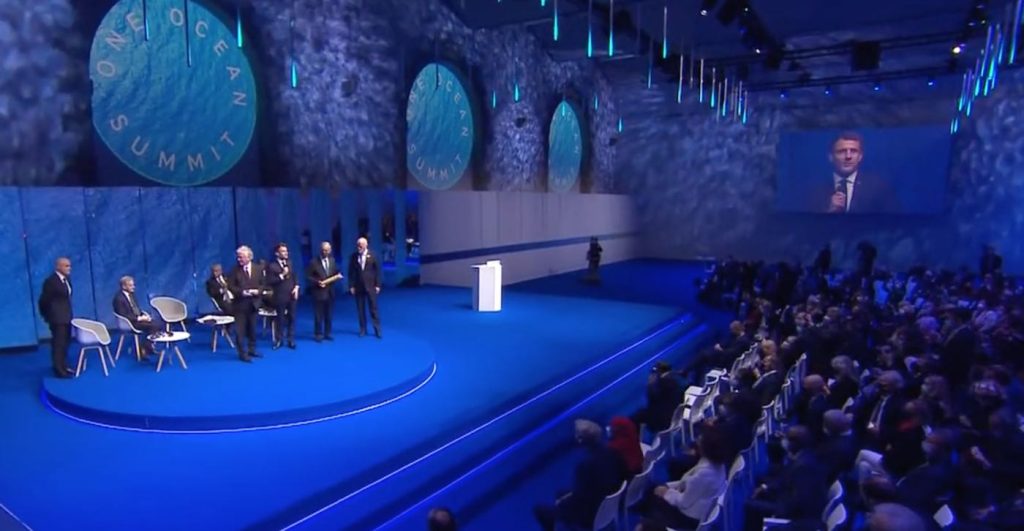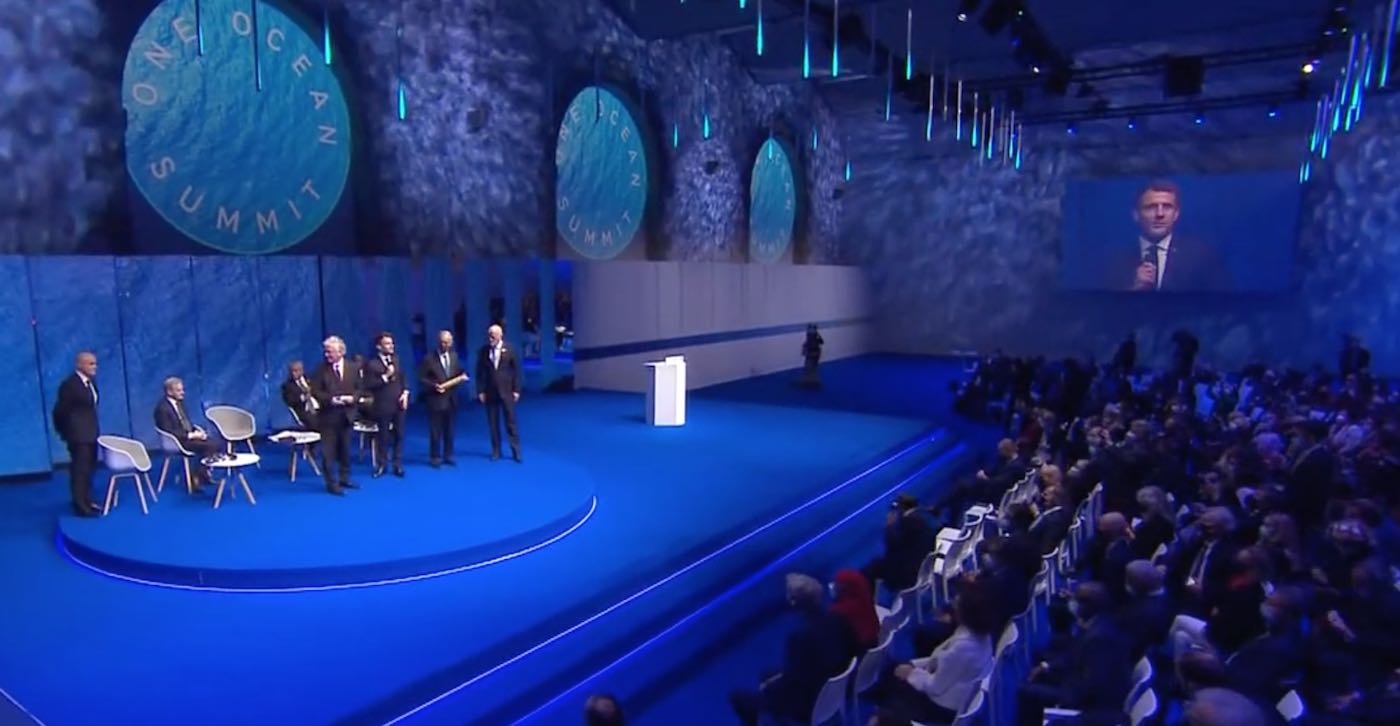
Representatives from more than 100 countries arrived last week in France for a summit on protecting oceans from pollution, plastic, and overfishing.
The nation which birthed the most famous marine biologist in history (that’d be Jacques Cousteau) welcomed the One Ocean Summit, the highlight of which was a 43-nation agreement to create a treaty to regulate the high seas in a more sustainable way.
A deal is looking likely when the United Nations meet in in March, and President of the European Commission described one as “so close.”
Being beyond the territorial jurisdiction of any country, the laws of the high seas must be made and changed through international accords, and thereby suffer from the “tragedy of the commons” problem that occurs whenever something is removed from the profit-loss function of the market.
A largely European affair, the U.S. nevertheless said it would throw its weight behind any proposals to introduce an international deal on curbing plastic pollution.
The European Bank for Reconstruction and Development joined the European Investment Bank and other state development banks to create a €4 billion fund for helping countries reduce their share of plastic pollution that ends up in the oceans.
CHECK OUT: Norway Closes Down Its Last Arctic Coal Mine and Transforms Land into Giant National Park
The summit in Brest also saw six more countries join the International Maritime Organization’s Cape Town agreement which sets safety standards for shipping vessels, while several EU nations said they would deploy their national navies to step up surveillance on illegal fishing vessels.
Colombia and France also jointly announced a blue carbon financing program to help improve the restoration of coastal mangroves and other important ecosystems.
Speaking for the private sector, 22 shipping countries pledged to reduce underwater noise pollution, sulfur pollution, and greenhouse gas emissions above deck, while 18 ports also signed on to reduce emissions.
DON’T WASTE the Good News; Share This Story…




















